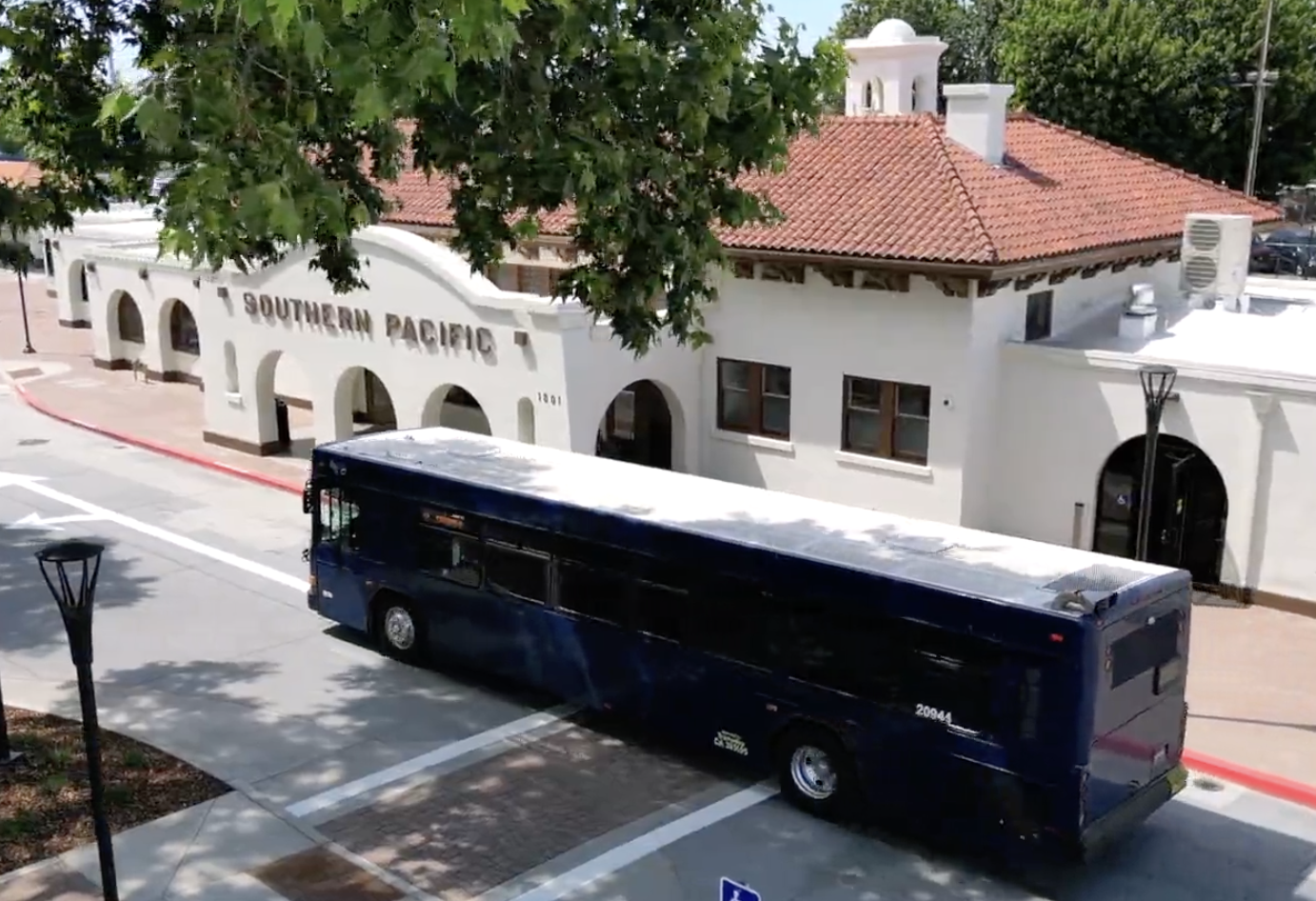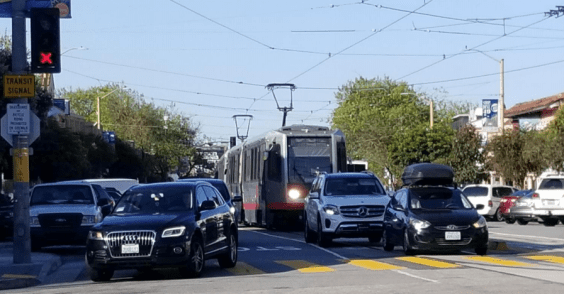Note: GJEL Accident Attorneys regularly sponsors coverage on Streetsblog San Francisco and Streetsblog California. Unless noted in the story, GJEL Accident Attorneys is not consulted for the content or editorial direction of the sponsored content.
Transit agencies and transit supporters have been calling for help to weather the existential crisis they are facing. A group of advocate organizations hosted a panel discussion today that drove home the urgency of finding more funding, and why action needs to be taken now.
They also suggested several urgent actions that people can take.
CTA has issued a call to Congress for $32 billion in aid nationwide, with $3.1 billion of that for California's many transit agencies, both rural and urban. That, said Michael Pimentel, is the minimum baseline amount needed to prevent transit in the state from collapsing entirely.
Panelists spoke of the people who rely most on transit, and who currently are the ones still riding it, while those who can are sheltering at home. As Beth Osborne of Transportation for America put it, transit is not simply a necessity for the people who rely on it directly. Everyone needs essential workers - from health care workers to grocery clerks to farmworkers - to be able to get to work, so all of us are in reality "transit dependent."
As a society, if we choose to ignore the most vulnerable among us, we are choosing to continue a history of racial, environmental, climate, and social injustice.
Right now, Congress is considering a relief bill that could include more funding for transit. Maybe. While there has been growing support for the call for emergency funding, representatives need to hear from constituents. Panelist Ike Irby, of Senator Kamala Harris's office, urged people to call or email Harris's office and share their personal stories about why transit matters to them. While California Senators Harris and Dianne Feinstein both support the call for transit funding, calls and emails help them make their case.
The panel organizers - TransForm, ClimatePlan, Dream Corps Green for All, Seamless Bay Area, Friends of Caltrain, and Urban Environmentalists - are also collecting signatures from organizations around the state to add to a letter to Harris and Feinstein outlining the issues and supporting the emergency funding.
Another requested action is to sign RideSafe's petition to protect transit workers, who are still struggling to say safe while providing essential services.
The transit crisis has been bad, and it is about to hit a "second wave" of problems, according to Pimentel, stemming from the quadruple threat of low ridership, the drop in sales tax revenue as people stay home and commerce drops, fares being waived in an attempt to keep drivers and riders safe, and increased operating costs associated with new sanitation protocols. And this is after steep cuts in services having already been made. Many agencies are considering even deeper cuts as they try to negotiate an uncertain future.
Many Californians are in dire straits right now. But the potential loss of transit would bring further, widespread difficulties, including unknown economic impacts that could make recovery from the pandemic even harder for everyone.
"How do people not realize that transit is essential?" asked Tamika Butler, one of the panelists. "We can't talk about economic mobility without talking about mobility. We can't talk about health without talking about access to health services."
"We celebrate essential workers as heroes one day," she said, "but the next day we will cut them off from access to what they need."
Other panelists reiterated the basic essential nature of transit itself, and emphasized its importance to the economy, not being merely an amenity for a portion of the population. Pimentel called it a moral imperative to provide basic access to work, to healthcare, and to food. If transit were to die, millions of people would lose the ability to access most basic human needs.
As Osborne put it, "Emergencies push us to do things we probably should have already been doing."
"This is not just about getting back to normal," said Butler. "The old normal sucked. We need leaders who are willing to push us to new boundaries of what transit means. It's a necessity, not an amenity."
You can watch a recording of the panel here.





